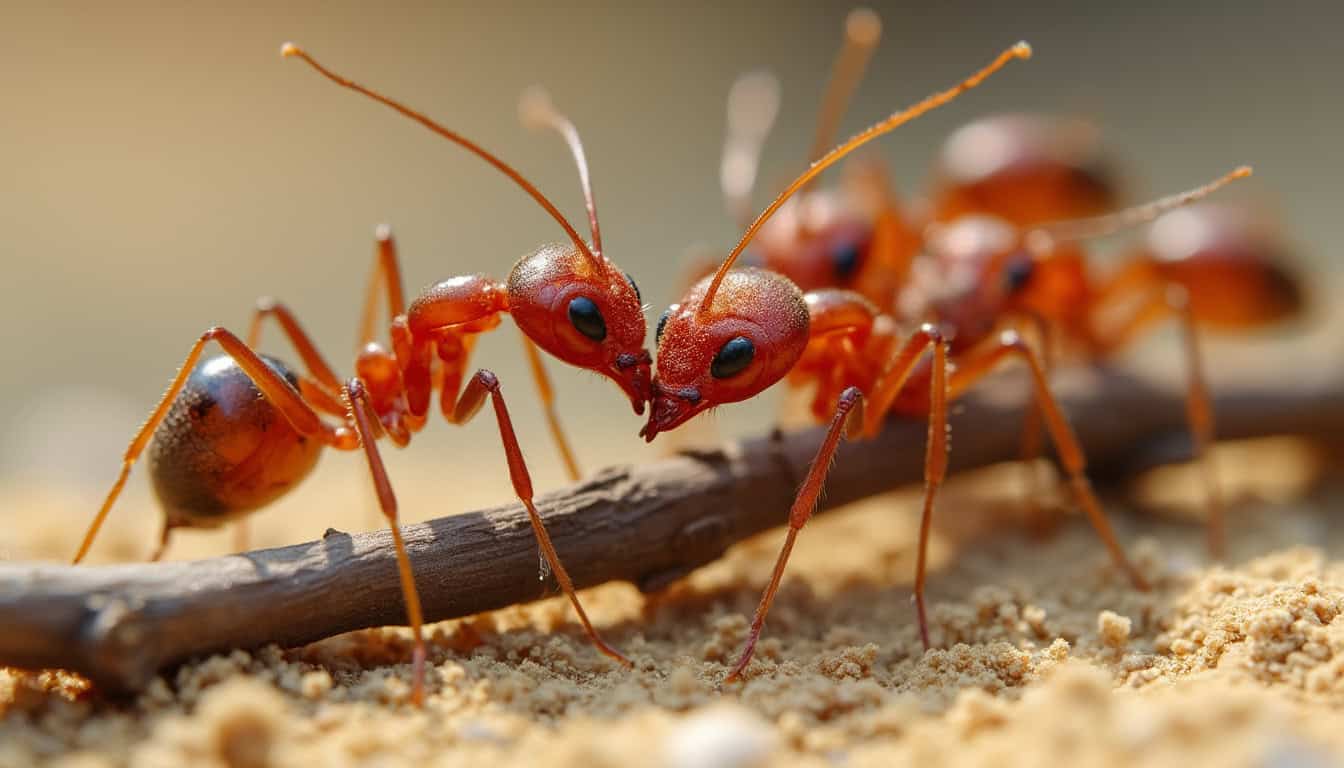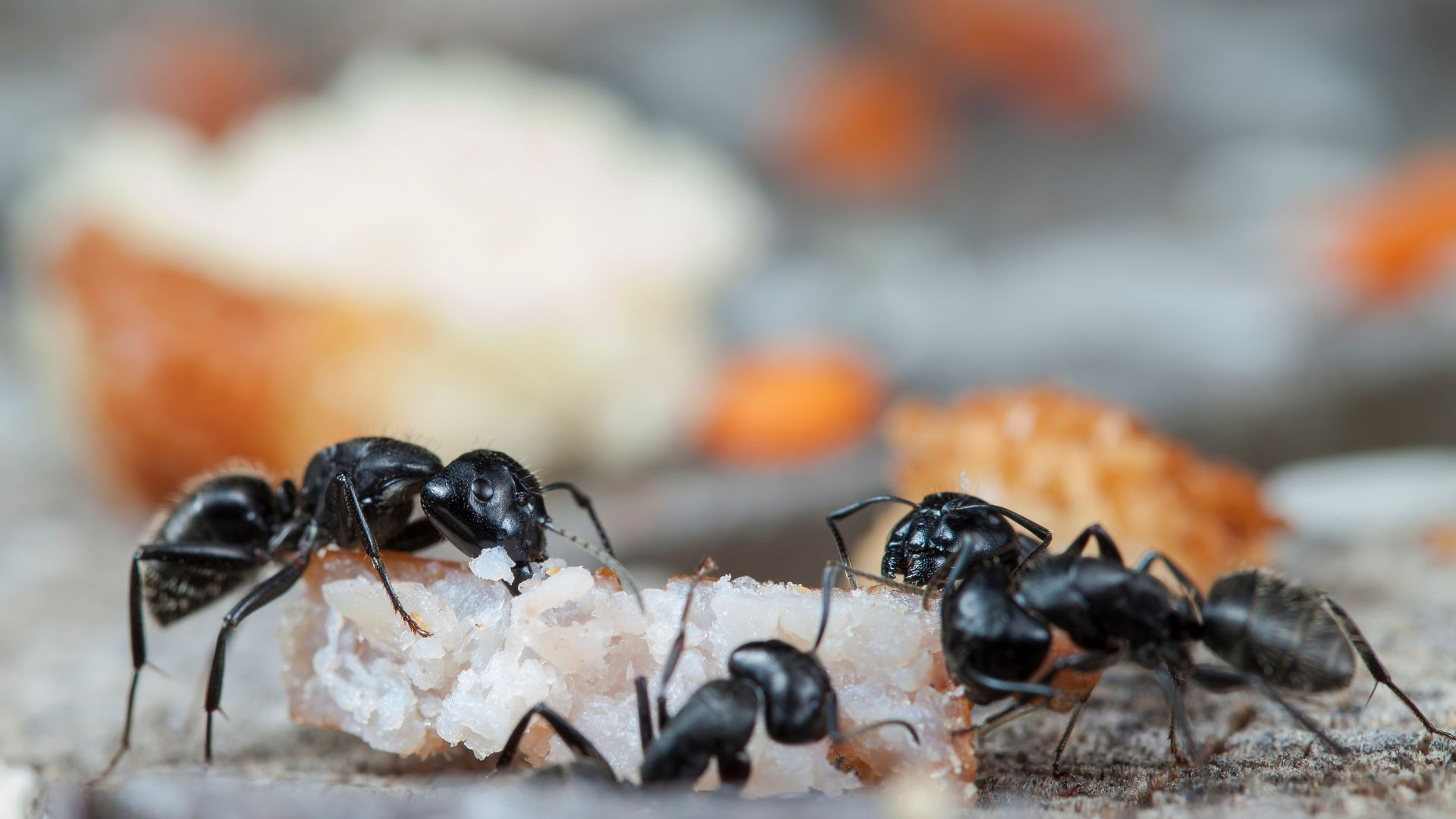Efficient Ant Control: Professional Services to Eliminate Ant Infestations
Efficient Ant Control: Professional Services to Eliminate Ant Infestations
Blog Article
Ecological Impact of Insect Control: Balancing Performance With Sustainability
The environmental effect of bug control is a vital concern that requires a delicate balance in between attaining efficiency in ensuring and managing insects sustainability of our ecological communities. From the use of harmful chemicals that permeate into our soil and water to the unintentional consequences on non-target species, the repercussions of conventional bug control practices are far-ranging.
Damaging Chemicals in Pest Control
The use of unsafe chemicals in insect control presents substantial ecological and wellness dangers that require careful consideration and mitigation techniques. Chemicals, insecticides, and herbicides are typically used to remove insects, but their widespread application can cause unplanned repercussions. These chemicals can infect soil, water resources, and the air, impacting not just the targeted pests however likewise beneficial bugs, wildlife, and people.

To deal with these dangers, incorporated insect management (IPM) techniques are being promoted as an extra lasting alternative. IPM involves a mix of methods such as biological control, environment control, and the targeted use chemicals as a last resource (ant control albemarle nc). By embracing a holistic technique to pest control, we can minimize the environmental and wellness impacts linked with dangerous chemicals while efficiently managing pest populations
Influence On Non-Target Types
Taking into consideration the unplanned consequences of pest control approaches, the influence on non-target varieties is a crucial aspect that requires detailed assessment. While pest control steps aim to target particular insects, other organisms in the community may be unintentionally influenced. Non-target varieties, including beneficial pests, birds, animals, and even plants, can endure indirect or direct injury from chemical applications or biological control approaches.
Pesticides designed to fight a certain bug bug might harm pollinators like bees or all-natural killers such as ladybugs. Biological control agents, if not species-specific, can present dangers to unintentional targets, disrupting the environmental balance.
To alleviate the impact on non-target types, incorporated insect management (IPM) techniques that highlight an all natural approach to pest control are advised. These approaches prioritize the use of eco-friendly techniques, lessening damage to beneficial microorganisms while effectively handling pest populaces. Carrying out detailed risk analyses and keeping an eye on the outcomes of insect control initiatives are important actions in safeguarding non-target species and advertising overall community health and wellness.
Dirt and Water Contamination
Unintentional ecological effects of bug control techniques expand past affecting non-target varieties, with significant implications for soil and water contamination - termite useful site control services. Pesticides, herbicides, and chemical fertilizers made use of in bug control can leach into the soil and contaminate groundwater, positioning a risk to both marine and earthbound ecosystems.
Water contamination is one more crucial problem connected with insect control methods. Drainage from agricultural fields treated with chemicals can carry these chemicals into close-by water bodies, affecting water microorganisms and water top quality. Pollutants in water sources can have far-ranging effects, affecting not just marine life but also human health with the consumption of infected water or aquatic organisms. To alleviate soil and water contamination from insect control activities, incorporated pest administration techniques that focus on sustainability and lessen chemical inputs are crucial.
Air Air Pollution From Chemical Use
Exposure to airborne chemicals during agricultural applications positions a considerable concern for air pollution control procedures. They can volatilize right into the air and form volatile organic substances (VOCs) and various other airborne contaminants when pesticides are splashed onto plants - termite control services. These chemicals can contribute to the development of ground-level ozone, a major component of smoke that can have harmful results on human health, plant performance, and overall air high quality. Furthermore, chemical drift, where chemicals are carried by the wind to unintentional locations, can bring about the contamination of nearby environments and water bodies.

Approaches for Sustainable Pest Control
In the realm of agricultural techniques, implementing lasting insect control strategies is paramount for maintaining eco-friendly balance and guarding plant returns. Lasting parasite control stresses making use of ecologically pleasant methods to handle pest populaces effectively while decreasing damage to non-target microorganisms and ecosystems. Integrated Bug Management (IPM) is a commonly taken on technique that integrates organic, cultural, physical, and chemical control methods to attain long-term insect administration solutions.
One secret strategy in lasting bug control is promoting biodiversity within agroecosystems. By enhancing all-natural opponents of parasites, such as killers and parasitoids, farmers can reduce the requirement for artificial chemicals. Plant turning and diversity are likewise reliable techniques to interrupt pest life process and develop less desirable conditions for pests to prosper. In addition, utilizing pest-resistant plant varieties and employing techniques like trap cropping can help in reducing parasite stress without counting heavily on chemical treatments. Ultimately, by incorporating these sustainable pest control strategies, farmers can achieve a balance between pest management efficiency and environmental stewardship.
Final Thought
In conclusion, the ecological influence of bug control methods should be very carefully considered to stabilize effectiveness with sustainability. Damaging chemicals utilized in parasite control can bring about dirt and water contamination, air pollution, and harm non-target types - ant control. It is important to implement sustainable bug control methods to lessen these unfavorable effects on the setting and advertise a healthier environment for future generations
By adopting an alternative method to pest control, we can reduce the environmental and wellness influences connected with unsafe chemicals while properly handling pest populaces.

To reduce the air pollution created by chemical use, it is crucial to embrace incorporated parasite monitoring strategies that prioritize the usage of non-chemical parasite control methods, such as crop rotation, all-natural predators, and resistant plant varieties. Sustainable insect control emphasizes the usage of ecologically friendly approaches to take care of bug populations effectively while lessening injury to non-target organisms and communities. Integrated Pest Management (IPM) is an extensively taken on method that integrates biological, social, physical, and chemical control approaches to accomplish long-term bug monitoring options.
Report this page